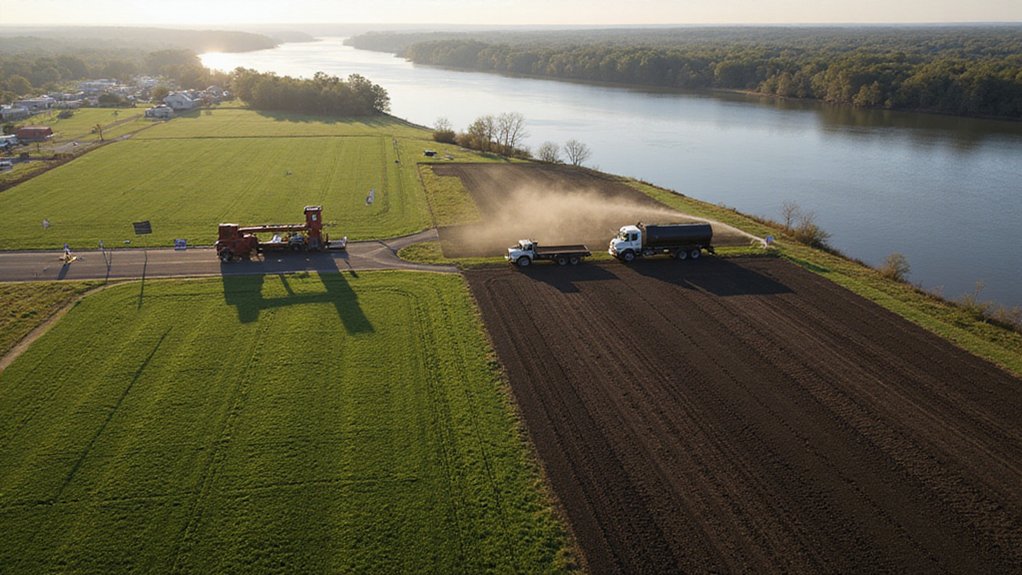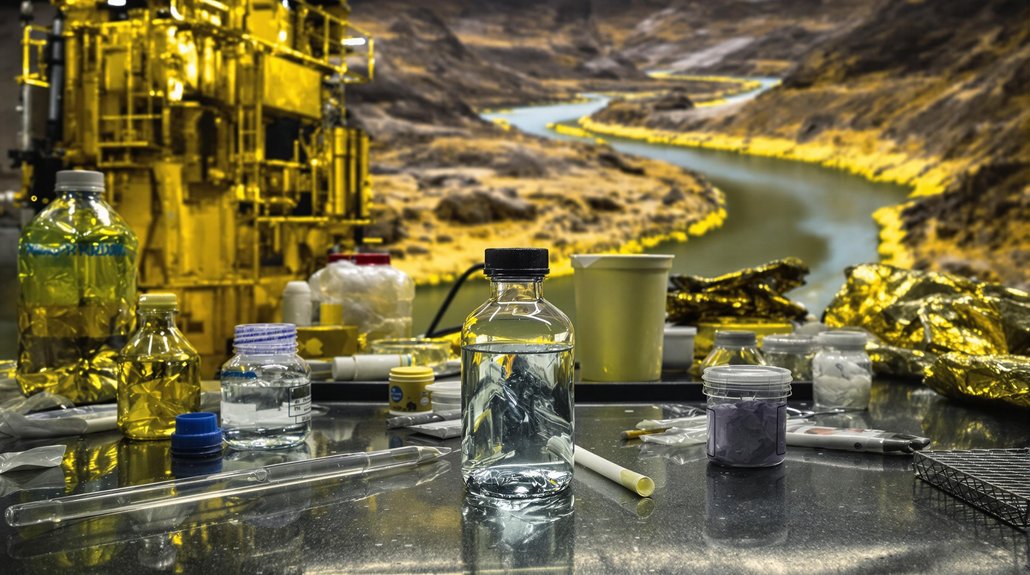Virginia residents are pushing back against Maryland’s sewage-based fertilizer crossing state lines. Tests have found dangerous “forever chemicals” in these biosolids, raising health concerns. Environmental groups now demand a halt to the practice, while Virginia’s Department of Environmental Quality faces criticism for approving the applications. As public opposition grows, calls for stricter regulations and transparent hearings intensify. The dispute highlights larger questions about waste management and cross-state environmental responsibility.
Maryland’s controversial sewage-based fertilizer faces growing rejection in Virginia amid rising concerns over “forever chemicals.” Environmental groups are pushing Virginia officials to stop the spread of biosolids from 22 Maryland wastewater treatment plants, where testing has revealed significant PFAS contamination.
The conflict highlights a stark regulatory difference between neighboring states. Maryland’s Department of Environment has recommended PFAS limits for biosolids and actively tests sewage sludge from treatment plants. Virginia, however, continues to allow widespread use of biosolids without PFAS testing, despite evidence of contamination.
Virginia’s Department of Environmental Quality (DEQ) has approved land application of sewage sludge from Maryland plants, even though Maryland’s own testing shows these biosolids contain harmful PFAS. This cross-border transfer has alarmed environmental advocates who argue it violates Virginia’s Pollution Abatement Act.
“Wall Street-backed corporations are trying to expand the spreading of PFAS-laden sewage sludge on Virginia’s farmland,” said a spokesperson from the Potomac Riverkeeper Network. The group, along with Chesapeake Legal Alliance, is calling on Virginia’s regulators to halt this expansion. The chemicals found in this sludge are linked to serious health issues including kidney cancer, liver malfunction, and decreased immune response.
Public opposition is growing. The DEQ has agreed to hold a public hearing on a permit to expand spreading of Maryland sewage sludge on Northern Neck farms. Local residents are increasingly vocal about the potential risks.
Health concerns drive much of the opposition. Research links long-term PFAS exposure to cancer, liver disease, immune suppression, and developmental issues. The EPA’s draft risk assessment warns that even low PFAS levels in biosolids could pose serious health threats. The situation mirrors issues in Frederick County, where eight schools faced contamination from sewage sludge applied near their grounds.
“This is the most cautious assessment I’ve ever seen from the EPA,” noted a retired EPA senior scientist, “and it still finds high risks.”
The issue reached Maryland’s legislature in March 2025, when a key Senate Committee rejected a bill for stricter PFAS limits in biosolids. This rejection has intensified concerns that contaminated waste will continue flowing across state lines, creating an environmental and health challenge that spans the Potomac.
References
- https://www.wusa9.com/article/tech/science/environment/forever-chemical-legislation-maryland-fails/65-9fec0c27-9fe0-45f5-a562-2d41bc466f0e
- https://www.potomacriverkeepernetwork.org/taking-on-toxic-sewage-sludge-contaminating-virginia-farms-and-waterways/
- https://www.ehn.org/opinion-virginia-is-not-testing-sewage-sludge-for-dangerous-chemicals
- https://www.potomacriverkeepernetwork.org/virginias-environmental-regulators-approved-disposal-of-forever-chemicals/
- https://www.ehn.org/pfas-contamination-from-farm-fertilizers-raises-health-concerns-in-virginia-and-maryland









